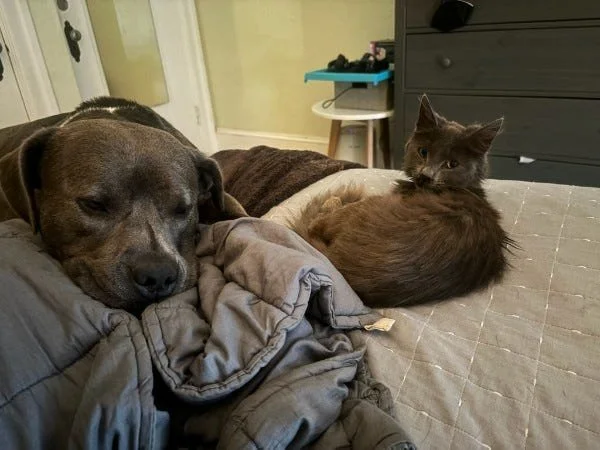Dear Readers,
I’ve been doing this newsletter for almost 10 years. If you’ve been here for a while, you know that I typically don’t comment on presidential elections. Instead, I spend time looking for great articles, and then I let the articles do the talking. That’s the whole point of Article Club. Together we read and discuss the best articles on race, education, and culture, kindly and thoughtfully, in order to expand our empathy.
The problem with publishing every Thursday is that every four years, there’s an issue that goes out two days after the presidential election. That’s not enough time for nuanced, well-written articles to emerge. Right now, it’s all hot takes. You’ve likely been reading these. They’re filled with fury, or fear, or delight, or despair. These pieces have a place, no doubt. But I’ve always shied away from including them here. I prefer to share articles that have had a little time for perspective.
That’s why this week I’m featuring an article that is eight years old. I found it in Issue #67, “White Won,” published in November 2016, way back when this newsletter was called Iserotope Extras. The piece is called “Farewell, America,” by Neal Gabler.
I encourage you to read the article. Here’s what I wrote about it at the time:
In case you want to wallow in despair, check out this article, which argues that the election killed America — our values, what we stand for, our place in the world. Except as I read this piece, I wondered how much of the American myth is just like any other country’s myth — important, of course, but really just a story, one that we can construct anew.
When I re-read the piece a few days ago, I was struck by how prescient it was. What people are saying now, Prof. Gabler was saying in 2016. It’s a little eerie, actually.
For example, here is how Prof. Gabler begins the piece:
Re-reading this passage got me thinking: If you cross out “Nov. 8, 2016” and replace it with “Nov. 5, 2024,” would anyone be able to tell? Prof. Gabler’s words eight years could easily have been written in yesterday’s newspapers.
The same can be said for Prof. Gabler’s prediction for the future:
Even before the Dobbs decision, Prof. Gabler understands that misogyny is on the way. Even before President Trump’s promise of mass deportation, he points out the xenophobia and nativism in our country. Most importantly, Prof. Gabler emphasizes the “white sense of grievance” bellowing from men. Pundits writing about Tuesday’s election comment on this phenomenon as if it’s fairly new. Not a chance, Prof. Gabler would argue. It’s old by now.
Finally, I was surprised by how well Prof. Gabler captured the severity of the time. There is no sugar coating. In stark prose, he makes sure to tell us that “we won’t survive unscathed” because “we know too much about each other to heal.”
Even his point that “democracy only functions when its participants abide by certain conventions” rings true. Prof. Gabler seems to predict the rightward shift in the American electorate years before other political commentators. In this piece, it’s clear that he doesn’t buy into a false progressive hope that people’s consciences would lead them to vote for now-outdated American values.
Re-reading Prof. Gabler’s article certainly didn’t make me feel hopeful. It cemented my sense that we are intractably stuck as a country. But I did find his piece still very relevant today. I hope you read it and tell me what you think.
💬 Your Turn: What do you think?
➡️ Is Prof. Gabler’s piece still relevant today? What’s the same? What’s changed?
If you’re comfortable, please share your experience. In typical Article Club fashon, be sure to be kind and thoughtful!
Thank you for reading this week’s issue. Hope you appreciated it. 😀
⭐️In case you didn’t see last week’s issue, I warmly invite you to our discussion of “Athens, Revised,” by Erin Wood. We are meeting on Sunday, Dec. 1, at 2 pm PT. Here is more information (including an interview with the author), and you can sign up here. Thank you to the eight of you who have signed up so far.
To our 10 new subscribers — including Aayda, TC, William, JH, Corinne, Hamza, Abigail, Staci, and Alice — I hope you find the newsletter a solid addition to your email inbox. Welcome to Article Club. Make yourself at home.
If you appreciate the articles, value our discussions, and in general have come to trust that Article Club will have better things for you to read than your current habit of scrolling the Internet for hours on end, please consider a paid subscription. I am very appreciative of Tyler, our latest paid reader. Thank you!
Subscribe
If subscribing is not your thing, don’t despair: There are other ways you can support this newsletter. Recommend the newsletter to a friend (thanks Orianna!), leave a comment, buy me a coffee, or send me an email. I’d love to hear from you.
On the other hand, if you no longer want to receive this newsletter, please feel free to unsubscribe below. See you next Thursday at 9:10 am PT.


























